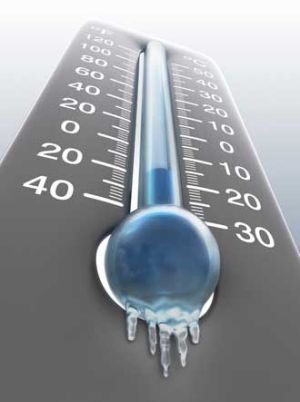Local News
Cold Weather Safety Tips Offered

With weather forecasters predicting cold temperatures and dangerously cold wind chills throughout Wisconsin this weekend, the National Weather Service has issued a special public health advisory to remind everyone of the dangers of severe cold, and safety tips to follow if you’re headed outside.
“With low temperatures and even moderate wind, common outdoor activities can quickly become life threatening, even for those appropriately dressed for the outdoors,” said Kim Mueller, Health Officer. “Exposed areas such as the nose and ears can freeze within 30 seconds with a wind chill factor of negative 30 degrees.”
The combination of bitterly cold temperatures and wind lead rapidly to life-threatening hypothermia, especially if a person is wet or damp. Hypothermia is a condition of abnormally low body temperature, and it occurs when your body begins to lose heat faster than it can be produced. Shivering is the first sign of hypothermia. Low body temperature affects the brain, and as hypothermia progresses, symptoms include lack of coordination, slurred speech, confusion and drowsiness. If you are outside and notice a person with any of these symptoms, immediately get them out of the elements and call for help.
People who participate in outdoor winter activities such as ice fishing, snowmobiling, or skiing should always be aware of the weather conditions and be properly dressed to protect themselves from the elements.
Other cold weather safety tips include:
- If you are going to be outside, let someone know where you are headed and when you expect to return.
- Make a car survival kit including blankets, sleeping bags, extra clothing and high-energy foods, cell phone charger with lighter adapter, collapsible shovel, bag of sand or cat litter to pour on ice to provide added traction, a can and waterproof matches to melt snow for water, flashlight and extra batteries.
- Be sure your vehicle’s fuel tank is at least half-full and the battery is charged. Replace windshield-wiper fluid with a wintertime mixture.
- Do not touch metal surfaces with uncovered hands – flesh will freeze immediately to the surface.
- Do not drink alcohol before participating in an outdoor activity – it can reduce your brain’s ability to recognize your body’s warning when it becomes too cold.
- Layer clothing and use hats and ski masks to cover nose and ears when going outdoors.
- If you have pets, bring them indoors. If you cannot bring them inside, provide adequate shelter to keep them warm and make sure that they have access to unfrozen water.
For more information, contact the Health Department at 929-3085. Or visit:
http://www.dhs.wisconsin.gov/health/injuryprevention/WeatherRelated/index.htm.
###


